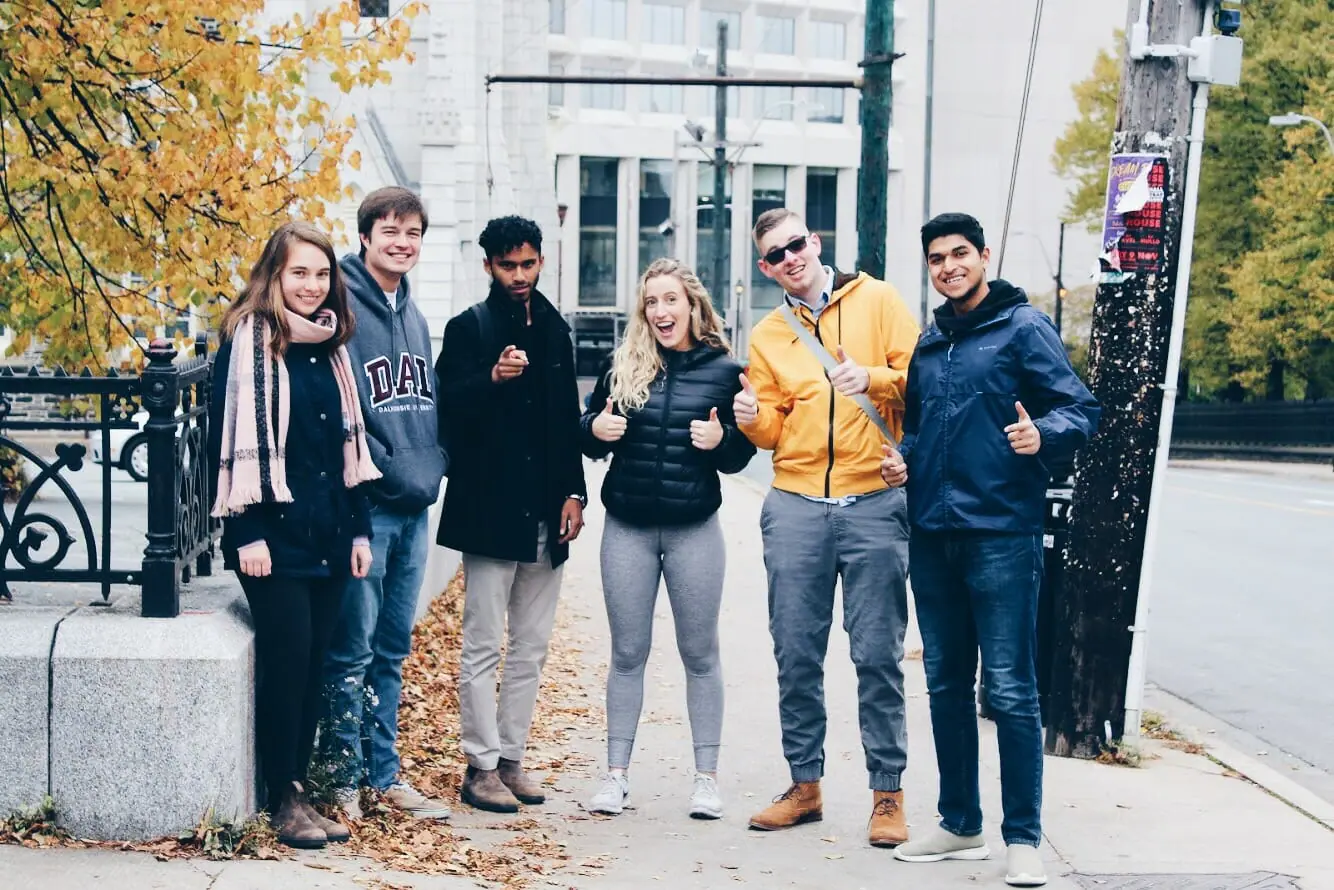Halifax non-profits are feeling the sting of the upcoming winter as they make special preparations to serve the city’s homeless population.
Greater Love, the non-profit, student society created by Mark Saldanha, offers food to the homeless on the streets of downtown Halifax. Their goal isn’t to alleviate homelessness, but to offer friendship to those who are often ignored. The executive of the student club at Dalhousie University is currently in talks to figure out how they want to change things for the winter season.
“I think we just focus more on ‘How do their needs shift?’” said Saldanha.
They still try to have friendly conversations, but they also want to provide winter necessities like blankets and mittens alongside the usual food. Items like mittens are knitted by people in the community and then donated.
While Greater Love reaches people directly on the streets, Halifax’s homeless population is larger than the people we see on the street. In 2015, over 1,508 people stayed in shelters, according to data from The Homeless Hub, an online library and information center that addresses the problem of homelessness in Canada. According to Linda Wilson, executive director at Shelter Nova Scotia, 652 people stayed at the Turning Point shelter last year; Barry House, another shelter, saw 208.
Out of the Cold is a shelter that operates every winter and provides last-minute housing to those on the streets. They only have 15 beds, with people also being able to drop in throughout the night. Many of their guests are repeat visitors.
Out of the Cold relies on their volunteers and donations from the community. They’re also busy setting up for the season right now, which starts on Dec. 1 and runs until the end of April. They’re currently searching for volunteers for roles like coming and bringing in meals every night and gathering donations from the community.
The volunteers are necessary for a couple of reasons: first, it’s how they run the place, and second, people are in even higher need right now than before.
“I’ve worked in shelters all year, and right now is for some reason way worse than last year,” said Rebecca Whitzman, the shelter coordinator and case manager for Out of the Cold.
Aside from providing emergency shelter, Out of the Cold also has a program where community members can drop off items like clothes and blankets, and those in need can take them home. Some of the most-needed items include men’s underwear and bus tickets.
In 2013, a conference that focused on finding solutions to homelessness in Halifax came up with a group that would attempt to deal with homelessness in the city; their goal was to end homelessness by 2019.
It hasn’t worked so far, but the premise may still have merit. The group was trying to end homelessness by using a housing-first approach, a strategy employed in Medicine Hat, Alta., which made the news in 2015 for being the first city in Canada to eliminate homelessness.
Whitzman said that at the core of the homelessness problem in Halifax isn’t a lack of available shelters; it’s an issue with affordable housing, and giving people more support when they do move into housing.
Shelters like Out of the Cold and outreach groups like Greater Love aren’t meant to be permanent solutions, but last-ditch options, said Whitzman. And the problem of homelessness could potentially be dealt with (although not necessarily fixed entirely) by making housing in Halifax more affordable, or by potentially setting up a program like the one in Medicine Hat.
Out of the Cold will operate until the end of April, while Greater Love goes out every Saturday. More information about their services can be found on their websites and on Facebook.


Recent Comments